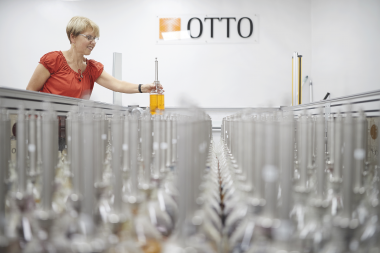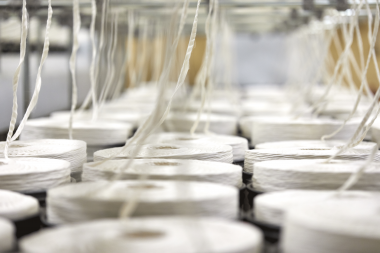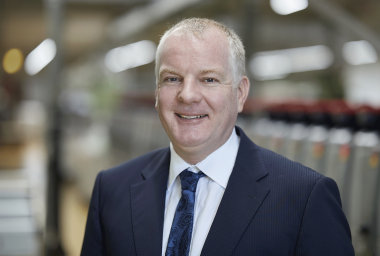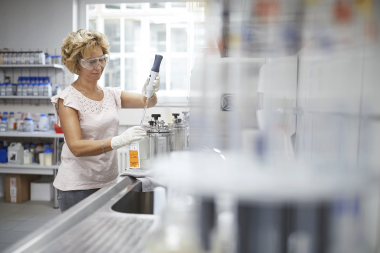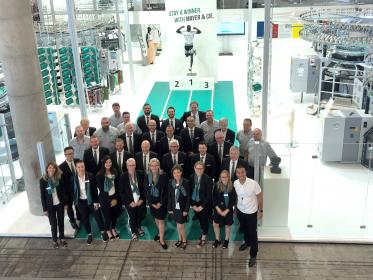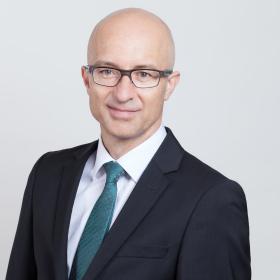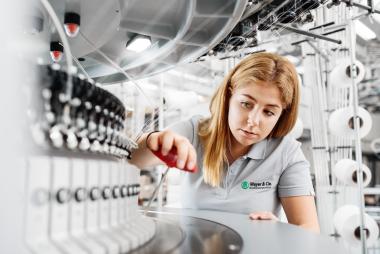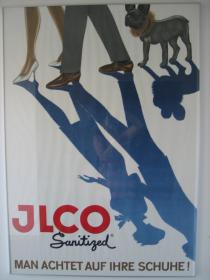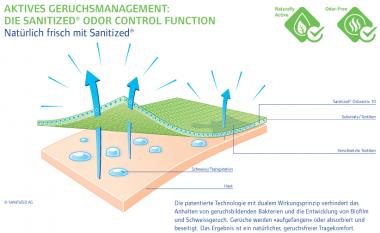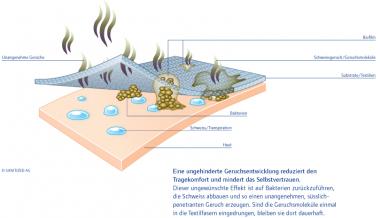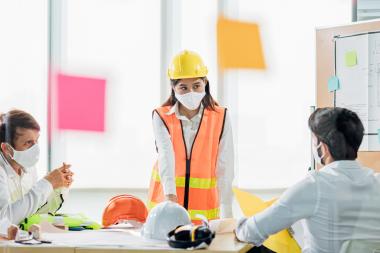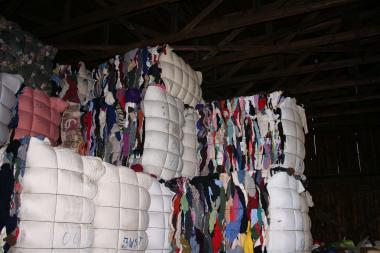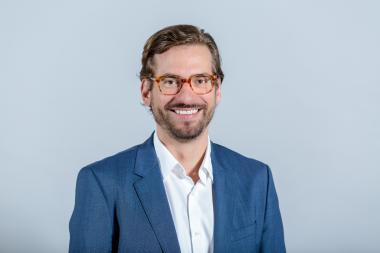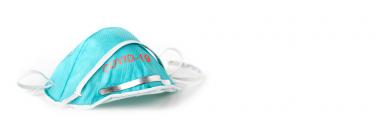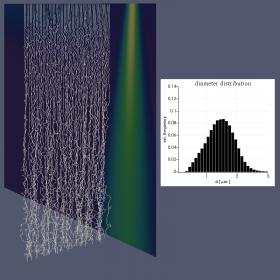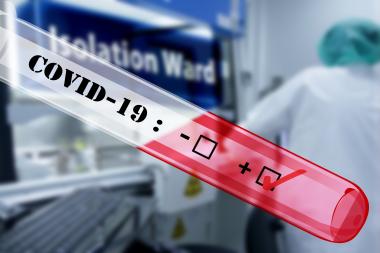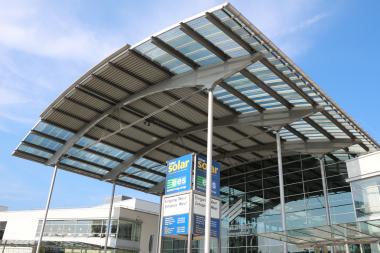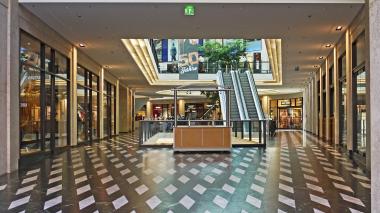Interview with Andreas Merkel, Managing Director Gebr. Otto GmbH & Co. KG
"OTTO has already survived two world wars and a pandemic in 1918, we will survive this one as well"
At least Europe seems to be able to breathe a sigh of relief after weeks of lockdown during the corona pandemic. The textile industry, an industry that has lived globalisation for so many years, is facing the challenge of maintaining its place in the new normal and building on its previous performance as quickly as possible.
Textination talked to three company representatives along the textile chain about personal and operational experiences.
Andreas Merkel, Managing Director of Gebr. Otto Baumwollfeinzwirnerei GmbH & Co. KG, takes over the second part of our series of interviews and succeeds Wolfgang Müller, Head of Sales & Service at the textile machinery company Mayer & Cie. GmbH & Co. KG. The spinning mill, which was founded in Dietenheim in 1901, is now considered as one of the most modern ones in Europe. The management decided against relocating production abroad and relies on premium yarns made from natural fibers as well as tailor-made customer solutions.
How have you felt about the corona era to date - as a company and personally?
What would you on no account want to go through again and what might you even consider maintaining on a daily basis?
The lockdown period was something surreal to me. It was difficult to understand what was real and what was virtual. I found it positive that the crisis brought people closer together and that they gave more appreciation to things people had taken for granted, such as their own workplace.
Overall, I have remembered the past few months as not being such a negative time. Of course, this is also because we as a company have got off lightly so far. We have no external obligations such as rents, leasing contracts and so on to serve. We also see a clear upward trend again.
What has the pandemic meant for your company so far?
The enterprise Gebrüder Otto has existed since 1901, we have already weathered a pandemic - the Spanish flu in 1918 - and we will survive this too. Of course, many orders suddenly broke off, and we had to cope with parts of the company in short-time work. Incidentally, an extremely sensible government offer that helped us to react quickly.
But I have the impression that the crisis is going to get off to a good start and I don't think we will stay at the current low level for a long time. As it looks now, we no longer need to take advantage of the short-time work in the spinning mill we had requested for July.
I am worried about the companies that will be hit hard by this crisis, especially in our industry, of course. We are already noticing insolvencies of long-established companies. The textile value chain in Germany is already very limited; let’s hope that this pandemic doesn’t shrink it any further.
What adjustments or innovations to your product portfolio have you felt obliged by the pandemic to undertake?
We saw a positive development even before the pandemic: More and more customers are asking about sustainable products, which we offer in a wide range.
Last year we started building up the brand "Cotton since 1901 - made in Germany" and launched it in April this year. We want to make the fact even clearer that we offer a regional, transparent and sustainable product with our cotton yarns made in Dietenheim. We have been based in Germany for almost 120 years and are part of our cityscape and local life. We - and our product - stand for consistency, responsibility and the highest quality standards.
Our yarns are the DNA of a high quality garment. Products that are made from "Cotton since 1901" are provided with a corresponding hang tag in the shops.
We are happy that we were able to launch this brand despite the difficulties that the corona measures implicated. Because now the topic is more important than ever. I recently had a conversation with a customer: Nothing works except in the sustainable segment. In short: high-quality products remain in demand, while it is becoming more and more difficult on the average market.
What are your views on global supply chains in the future, and will you be drawing consequences for your procurement policy?
In Germany, we have a high degree of company-internal value-add, we spin, twist and dye. Our cotton is extra-long-staple and we source it from Spain and Israel, from long-term suppliers. Because of Corona, there was no reason for our procurement to take consequences.
However, the crisis will have made it clear to many people that mass products used in daily life are no longer so easy to manufacture on their doorstep. But we need a reliable and high availability in Germany. That is why we should strengthen regional production, also in the long term. Sure, this is only possible in cooperation with customers and partners who appreciate these values. That doesn't work if everyone just looks at the price. Pricing is not everything. From this perspective, the pandemic was certainly an important catalyst.
How do you rate the importance of partnerships within the industry in the future?
Does Covid-19 have the potential to promote the creation of new cooperation arrangements in the industry? Or have they already taken shape?
Vertical partnerships are becoming increasingly important. Well, the shrinkage of the industry implicates this anyway. But we have to work together even more and the quality of the partnerships needs to become closer.
If one of the remaining specialists fails - let's assume that the companies that are now going bankrupt would have to close completely - then everyone else will be affected. There are no such specialists ten a penny, if they fall away, then some products cannot be manufactured locally anymore. You can build a fantastic car, no matter how good, if you don't have someone who can provide you with the steering wheel, you don't have a finished car.
What initiatives or approaches for your industry would you welcome for the near future?
Regional products should be given a parent brand so that consumers can recognize a regionally manufactured product as such. There was something like this in Switzerland with Swisscotton. I have suggested this several times in the association of the textile industry. It would be best for the industry if all manufacturers jointly build up such a regional label. After all, consumers are ready to spend money if they know where a product comes from and that it was manufactured fairly and sustainably. Everyone would benefit from such transparent added value. And digitization offers the ideal platform for this.
What would you like to see as part of the German textile industry?
Do you feel that the status of the German textile industry has changed as a result of the pandemic, especially in respect of public procurement?
As far as public procurement is concerned, I cannot answer this question because it does not really affect us.
But of course the pandemic has shown how fatal it can be if products are no longer manufactured in Germany, for example if antibiotics are market under the name of German companies but are actually manufactured on the other side of the world.
At the end of the day, the question arises: being a part of the textile industry – are we systemically relevant? Partly yes, I think, because if tomorrow
nobody produces yarns in Germany or Europe anymore, this will have consequences for systemically relevant products. And, as you know, you only realise that things can get tight when there is a bang. That is why I think that in a country like Germany there must be a basic supply of products and technology. After all, it's also about further development, about innovations. If I want to make a virus-free mask, I need local partners.
Until now the big issues have been globalisation, sustainability / climate change / environmental protection, digitisation, the labour market situation and so on.
Where do they stand now and how must we rate them against the backdrop of the Covid-19 pandemic?
For us at Otto, sustainability and environmental protection have been a long-standing central corporate value. We produce our electricity partly independently, from hydropower. Our products and processes have been certified according to the highest standards. In my lectures, I often show how much water is needed to produce cotton, and how precious this raw material is in itself.
Together with the valuable regional added value, this gave rise to our new brand "Cotton since 1901". There will be a QR code on the hang tags on the finished garments, so that the buyer can check what is inside the product.
Such approaches, which are sustainable and regional, are a mega opportunity that we have to use. The corona crisis had demonstrated this very clearly.
What lessons are to be learnt in respect of these targets for the post-corona era?
I'm afraid things will go on as before in many areas. But still: We looked at the medical manufacturers who suddenly could no longer deliver everyday medicines. And we have seen the conditions under which meat products are produced.
Do we want that? No. In the end, consumers value flawless products - and we should deliver them.
This interview was conducted by Ines Chucholowius, CEO Textination GmbH


